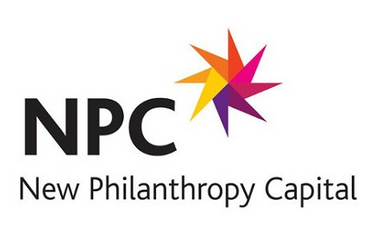Charities must fundamentally change how they make decisions due to today’s unending crises, according to a new guide for trustees from think tank NPC.
The guidance outlines four ways in which charity governance should adapt, including:
- Focus on your mission, not your preservation.
- Recognise that change is constant and that your response will need to keep evolving, rather than holding out for a return to business as usual.
- Use lived experience to shape how you interpret data and make decisions.
- Look beyond your immediate focus, recognising how crises are connected and work with others as part of a systems strategy.
‘Keep your charity focused on its core purpose’
The guide states the top priority for any trustee is to “keep your charity focused on its core purpose – achieving impact”.
It says charities “cannot help anyone without your staff” and states beneficiaries will suffer if staff cannot perform at their best.
“If an organisation works in ‘crisis response mode’ for too long, staff are likely to get burned out and leave,” the think tank warns.
NPC’s guide adds that charities may need to look at structures and protocols for trustee involvement, “adopting a more flexible or iterative approach which helps trustees make timely and informed decisions”.
“It can be helpful to adopt a change mindset – recognising that change is constant, and that your response will need to keep evolving. In a permacrisis, there is no point holding out for a return to ‘business as usual’,” the guide reads.
“If we see ‘permacrisis' as continual change, rather than a brief pause in business as usual, it is clear that we need to use the tools at our disposal to understand and reflect on what is needed, what is working, and when to pivot.”
The guide adds that boards should empower trustees to develop and grow their role, such as by listening to one another about their experiences.
It adds that in times of rapid change, it is important to review and regularly reassess how your organisation fits into the wider ecosystem as “previous assumptions may quickly become inaccurate”.
“To respond effectively as circumstances change, you need to see your organisation as one of many moving parts,” it states.
‘This is not a one-off storm’
Charlotte Lamb, principal for involvement and decision-making at NPC, said: “For anyone tasked with managing risk and making decisions, the past few years have felt like one crisis after another.
“This is not a one-off storm. The climate has changed. We’re now in a time of permacrisis; of unceasing storms, swells, and hurricanes through which we must navigate. Whether you’re a trustee or a chief executive, you cannot continue as before. In any crisis, people’s needs change.
“If you continue to deliver what you have always delivered, or to make decisions as you have always done so, then you risk becoming less relevant and less impactful.”
Lamb added: “Knowing where you’re going still matters, but you’ll need to be flexible in how you get there. You’ll need to make strategic decisions more often, and ensure they are genuinely influenced by lived experience. Aim for a ‘minimum viable strategy’, which clearly articulates your vision, mission, and values. Leave everything else to be adaptable.
“Resist the temptation to scale back on measurement, evaluation and learning as a ‘non-delivery’ activity. Times of rapid change are precisely when measurement is most needed.”
Related Articles












